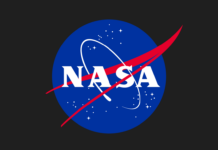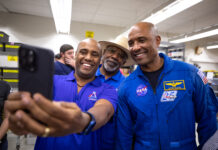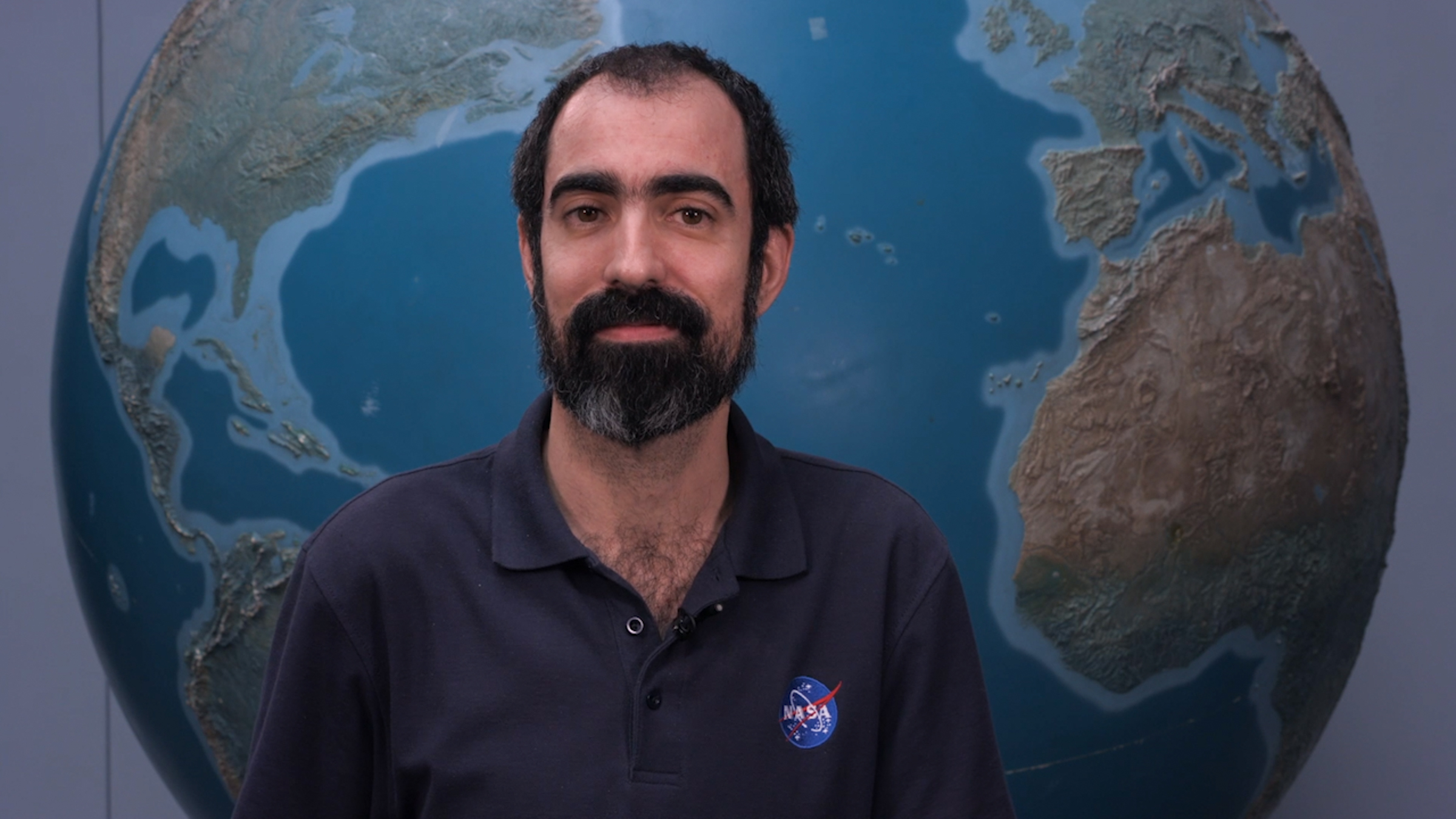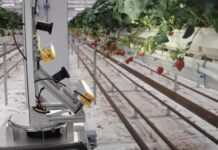Exploring Cloud Patterns: The Work of Alfonso Delgado Bonal at NASA Goddard
Alfonso Delgado Bonal, a research scientist at NASA’s Goddard Space Flight Center, is making significant strides in understanding cloud behavior and patterns. His role within the Climate and Radiation Laboratory, part of the Science Directorate, involves analyzing data from the DSCOVR (Deep Space Climate Observatory) satellite to study how cloud properties vary during the day. This research is crucial in comprehending how clouds impact climate regulation.
The Scientist Behind the Research
Alfonso Delgado Bonal’s journey to becoming a research scientist at NASA began with an extensive academic background. He holds an undergraduate degree in theoretical physics from the University of Salamanca in Spain. Building on this foundation, he earned a master’s degree in astrophysics from the University of Valencia and another master’s in space technology from the University of Alcalá. His academic pursuits culminated in a doctorate in theoretical physics from the University of Salamanca in 2015.
Before joining NASA, Bonal gained experience through postdoctoral fellowships. From 2016 to 2018, he was associated with the Spanish National Research Agency, and from 2018 to 2020, he continued his research at Goddard’s Climate and Radiation Laboratory. Interestingly, he also holds degrees in economics from the Spanish Open University and in law from the University of La Rioja, reflecting his diverse interests. Currently, he is contemplating pursuing a master’s in law to qualify for the bar exam.
Fascination with Clouds
Alfonso’s intrigue with clouds dates back to his childhood. He recalls watching clouds move and wondering if there was a pattern to their motion. This curiosity was further ignited when his mentor, Sasha Marshak, asked him to explore whether clouds move randomly or follow specific patterns. This question has driven much of Alfonso’s research.
Clouds play a vital role in maintaining the Earth’s energy balance. They have the dual effect of reflecting solar radiation, which helps cool the planet, and trapping heat, which can contribute to warming. Understanding cloud behavior is thus essential for predicting and mitigating climate change.
Insights from the DSCOVR Satellite
The DSCOVR satellite is unique because it captures data showing the entire sunlit portion of Earth simultaneously. This capability allows researchers like Bonal to observe how clouds change throughout the day. Previously, satellites could only capture cloud data at fixed times or over small regions.
Through his research, Bonal has discovered that clouds do not move randomly but follow discernible patterns. These patterns are measured in terms of cloud fraction (the portion of the sky covered by clouds), cloud height, and cloud optical thickness. Generally, maximum cloud coverage over land and minimum coverage over the sea occurs at noon, when clouds are typically lower and thicker. This predictability aids in understanding broader climate patterns.
Cultural Adaptation and NASA Family
Transitioning from Spain to NASA presented cultural challenges for Bonal, particularly regarding language and workplace dynamics. In Spain, the concept of a "work family" was unfamiliar to him. However, over time, he embraced the supportive environment at NASA, where colleagues genuinely care for one another beyond professional interactions.
His mentors, Sasha Marshak and Lazaros Oreopoulos, played pivotal roles in helping him adjust. They made him feel welcome and integrated into the NASA family. Marshak, who also came from a different country, shared a similar background in mathematics and theoretical physics, which helped Bonal navigate the challenges he faced. Both mentors encouraged a balance between professional respect and familial warmth, fostering a collaborative and nurturing work environment.
Mentorship and Creative Inquiry
Sasha and Lazaros have imparted invaluable lessons to Bonal, emphasizing the importance of creativity and inquiry in scientific research. They encourage asking questions, even those that seem impossible to answer initially. This approach has led to unexpected and significant discoveries in cloud behavior.
Personal Life and Pursuits
Outside of his scientific endeavors, Bonal enjoys spending quality time with his family. He has a wife who is a biologist, and together they have two young children. His wife’s background in biology has also enriched his understanding of science. In his leisure time, Bonal is an avid reader. He is currently revisiting the classic "Iliad" and cherishes "The Little Prince" as a personal favorite. Storytime with his children is a cherished nightly ritual, where they often read to him as well.
Aspirations and Philosophies
Bonal’s ultimate dream is to see his children lead fulfilling and joyful lives. He lives by the motto, “If you’re going to try, go all the way,” a quote by Charles Bukowski, which inspires him to pursue his goals with determination and commitment.
Conclusion
Alfonso Delgado Bonal’s research at NASA Goddard is contributing significantly to our understanding of cloud dynamics and their impact on climate. His journey from Spain to NASA, supported by mentors and a nurturing work culture, highlights the importance of collaboration and creativity in scientific discovery. As he continues to analyze cloud patterns, Bonal’s work promises to enhance our ability to predict and respond to climate changes, underscoring the vital role of clouds in Earth’s environmental balance.
For more Information, Refer to this article.

































